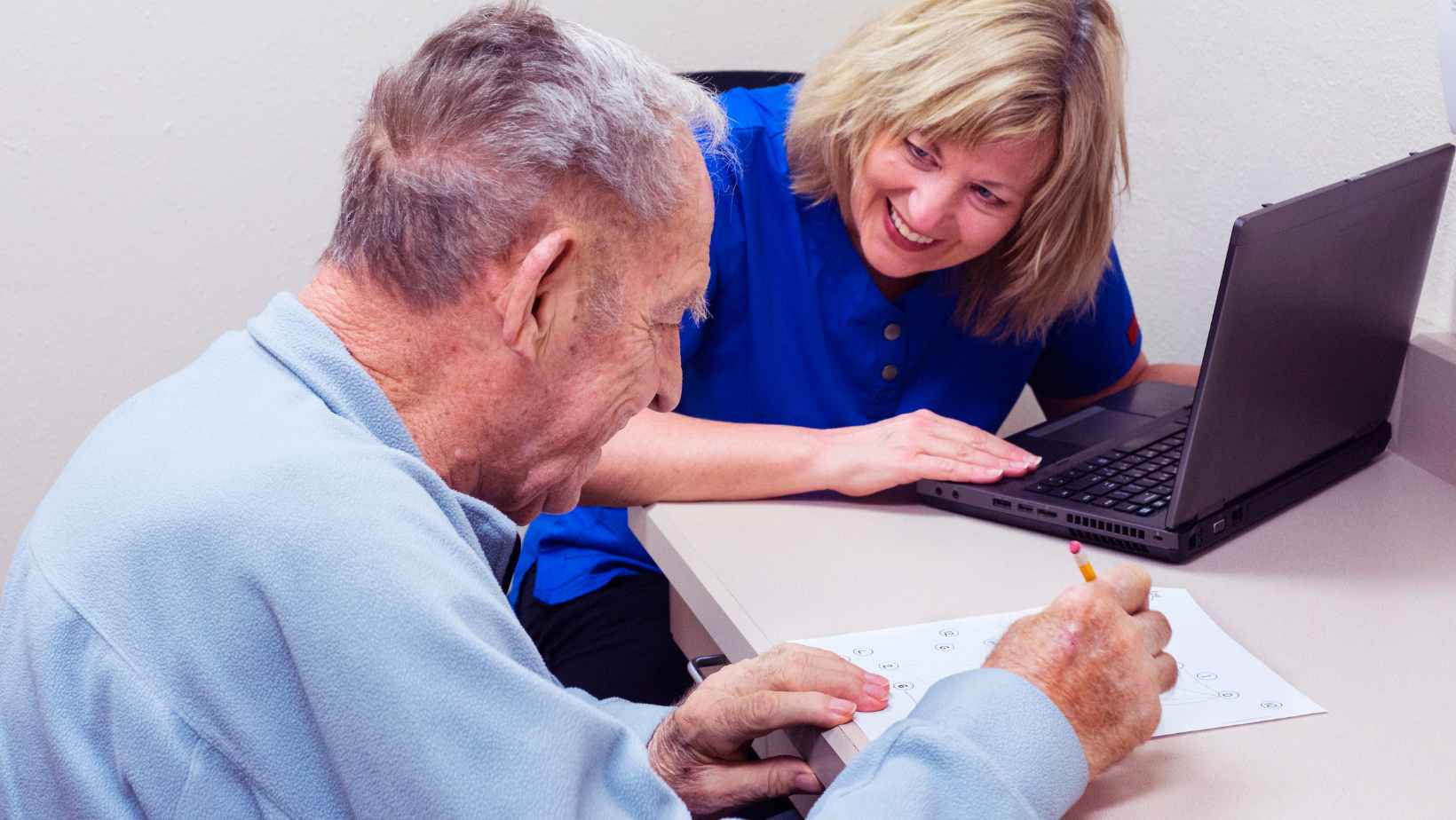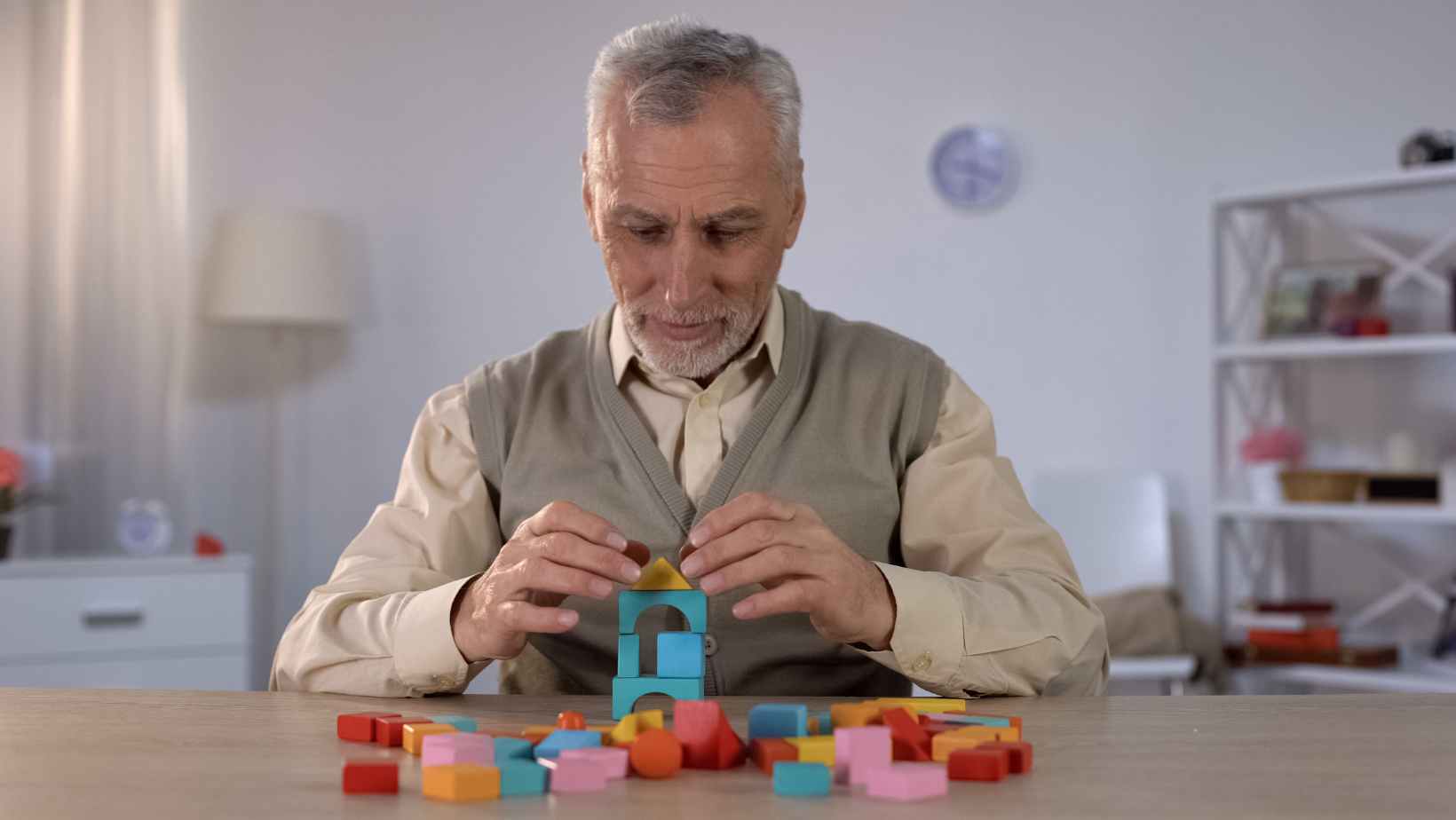Mindfulness Cognitive Behavioral Therapy (MCBT) is an approach combining the principles of mindfulness with those of traditional Cognitive Behavioral Therapy. By adopting a non-judgmental and accepting attitude towards one’s thoughts, feelings, and experiences, MCBT encourages patients to develop healthier ways of coping with stress and negative emotions.
By practicing mindfulness techniques, patients become more aware of their thoughts without getting lost in them. This increased awareness can help identify self-defeating beliefs and assumptions that contribute to emotional distress. Consequently, patients learn more productive ways of thinking and behaving, leading to better mental health outcomes.
Furthermore, MCBT has been shown to be effective in treating a range of mental health conditions such as depression, anxiety disorders, and chronic pain management. It provides patients with practical tools for managing intrusive or unwanted thoughts aimed at reducing emotional distress associated with these sensations.
Those looking into improving their wellbeing can benefit from exploring MCBT techniques under the guidance of a qualified practitioner. Don’t miss out on the potential benefits of this approach for improved mental health and well-being!
MCBT: When you want to Zen out your mind, but also need to keep it real.
what is mindfulness cognitive behavioral therapy?
To manage mental health issues effectively using mindfulness cognitive behavioral therapy, explore how it enhances self-awareness and emotional regulation, resolves negative thoughts and beliefs, develops effective coping strategies, reduces stress and anxiety symptoms, and improves interpersonal relationships.
Enhancing Self-awareness and Emotional Regulation
Developing Mindfulness and Emotion Management through MCBT
A significant advantage of utilizing Mindfulness-based Cognitive Behavioral Therapy (MCBT) is its ability to help individuals develop mindfulness, self-awareness, and regulation of their emotions. With regular practice, MCBT can improve a person’s capacity to recognize and manage emotional states effectively.
By focusing on present-moment awareness, MCBT helps individuals understand the triggers of their thoughts and emotions. Through meditation techniques and cognitive restructuring, one learns how to modify thinking patterns that lead to negative emotional reactions.
Moreover, through MCBT’s integrating principles of cognitive-behavioral therapy with mindfulness practices, individuals can become more self-compassionate while regulating challenging emotions like anger or sadness.
Mental health concerns often arise from unregulated stress and emotional reactions; MCBT provides a toolkit for coping strategies in times of need. Those who suffer from mental illnesses like depression or anxiety may benefit significantly from this holistic approach.
Don’t let untreated mental health take control – consider seeking out therapists trained in MCBT techniques today.
Say goodbye to your negative thoughts and beliefs, they couldn’t handle the power of MCBT even if they tried.
Resolving Negative Thoughts and Beliefs
Addressing negative thought patterns and beliefs is a critical component in managing mental health issues. Mindfulness-based cognitive therapy (MCBT) has shown efficacy in helping individuals identify and challenge these limiting cognitions, fostering healthier thinking that can ultimately improve overall well-being. Through various techniques, including meditation, breathing exercises, and cognitive restructuring, MCBT promotes self-awareness and emotional regulation, empowering individuals to break free from negative thinking patterns.
MCBT enables individuals to separate themselves from their thoughts and observe them objectively without attaching judgment. This approach allows the individual to create distance between themselves and their negative thought pattern and challenge the accuracy of these beliefs. MCBT also encourages the development of positive affirmations as an effective countermeasure against negative thoughts. It is through regular mindfulness practice that the individual can gain greater insight into their thought processes and foster a more positive mindset.
A significant advantage of MCBT over other therapies is its ability to produce long-lasting results by developing lifelong skills that enable individuals to cope with stressors independently. These skills decrease the incidence of relapse, reducing the need for recurring therapy or medications over time.
Pro Tip: Regular practice is key when it comes to reaping maximum benefits from MCBT techniques. Consistency in mindfulness exercises will lead to a more profound understanding of oneself and promote sustained positive change.
When life gives you lemons, make lemonade. When life gives you anxiety, make a mental health action plan.

Developing Effective Coping Strategies
By developing adaptive coping strategies, individuals can manage and overcome various mental health issues. Mindfulness-Based Cognitive Therapy (MCBT) is a form of therapy that helps develop effective coping strategies for people dealing with anxiety, depression and stress. It emphasizes on cultivating awareness, thinking patterns, behavior and emotion regulation skills to build resilience.
In MCBT, patients learn to become more self-aware of their thoughts and emotions without judgment or reactivity. They are encouraged to accept difficult experiences in the moment so that they can gradually disengage from unhelpful thought patterns and behaviors. By learning how to communicate effectively, coping strategies can be developed that can be used in everyday situations.
MCBT addresses some unique elements such as developing problem-solving skills, cultivating non-judgmental attitudes towards oneself and others and paying attention to physical sensations. Through formal mindfulness practices like meditation or yoga, patients can access inner resources that would enable positive emotional qualities like empathy, compassion, gratitude.
Some suggestions that might help an individual to develop effective coping strategies include:
- engaging in physical activity as it leads to the release of endorphins – natural chemicals in the brain that act as painkillers – increasing feelings of positivity and energy levels;
- seeking social support from loved ones;
- keeping a journal where one writes down negative thoughts to identify triggers and work through problems;
- volunteering or helping someone else through random acts of kindness which allows individuals to experience joy beyond themselves.
Ultimately practicing mindfulness leads us towards finding meaning and purpose in our lives while resolving core issues associated with mental health. “Who needs meditation when you can just do a downward-dog in your mind with MCBT?”
Reducing Stress and Anxiety Symptoms
By utilizing Mindfulness-Based Cognitive Therapy (MCBT), individuals can alleviate the symptoms associated with stress and anxiety in a natural way. MCBT aims to teach people how to recognize their negative thought patterns and to detach themselves from them, creating a sense of mental clarity and reduced stress.
Furthermore, MCBT allows an individual to confront their issues head-on, instead of avoiding or suppressing them. The practice incorporates different meditation techniques intended to promote relaxation and mindfulness in daily life, further facilitating the reduction of stressors and minimizing anxiety symptoms.
In addition, frequent MCBT sessions can potentially improve an individual’s immune system as well as their neurological functioning. Additionally, since recurrences are known once someone falls into depression or experiences a relapse of anxiety attacks/symptoms despite therapy sessions, MCBT has shown an increased ability for preventing such recurrences from happening.
Pro Tip: Pairing MCBT with an exercise routine like yoga involves creating more mental balance as well as physical wellness.
Who needs real friends when you can just use MCBT to become your own therapist and lover?
Improving Interpersonal Relationships
Enhancing Connections with MCBT
Effective relationships rely on communication, trust, and self-awareness. Mindfulness-Based Cognitive Therapy (MCBT) proves helpful in improving the way individuals connect with others. By fostering self-awareness and reducing negative thoughts, the technique increases empathy and emotional control.
Strong ties are built with nonverbal cues. MCBT trains individuals to identify their emotions, leading to better emotional regulation that exudes warmth and friendliness towards others. Through mindfulness exercises, practitioners gain understanding of present situations without having a judgmental attitude.
Additionally, cultivating self-compassion through MCBT stimulates positive change in the internal dialogue of individuals which contributes to improved interactions with others. Furthermore, reframing negative thoughts helps reduce social anxieties leading to more relaxed socialization.
A woman who struggled with interpersonal relationships due to anxiety was referred for MCBT sessions by her therapist. The therapy helped her feel more comfortable in her own skin and gave her the confidence to start new relationships confidently while maintaining existing ones with respect and care.
Mindfulness and CBT: Adding some mindfulness to your day keeps the therapist away.
How to Incorporate Mindfulness and CBT Techniques into Your Daily Life
To incorporate mindfulness and CBT techniques into your daily life for a more balanced and fulfilling experience, try out the following sub-sections: Mindful Breathing and Meditation, Cognitive Restructuring Exercises, Gratitude and Positive Self-talk Practices, Mindful and Active Listening Skills, and Acceptance and Commitment Therapy Techniques.
Mindful Breathing and Meditation
Conscious Breathing and Mindful Meditation
Implementing conscious breathing and mindfulness meditation can foster self-awareness, reduce stress, and boost mental clarity. Start with slow, intentional breaths for a few minutes daily. Then, try focusing on the present moment during meditation with guided meditations. The practice is beneficial to improve overall well-being.
Use CBT-inspired Techniques
Cognitive Behavioural Therapy (CBT) techniques are renowned to break negative thought patterns. Challenge your cognitive distortions by exploring alternative perspectives. Consider journaling your thoughts about an event or situation to gain awareness of your automatic thinking.
Unique Details
Involve all senses in mindfulness exercises such as mindful eating, sound therapy, and mindful walking to engage every sensory system in present-moment experiences.
True Story
After incorporating daily mindful breathing into my routine using a mobile app, I became more aware of my thoughts’ effect on my emotions. Eventually, my anxiety lessened significantly as I learned to reframe negative thoughts and focus on the positives.
Time to reshape your thoughts like a Play-Doh sculpture with these cognitive restructuring exercises. Fun for the whole dysfunctional family!
Cognitive Restructuring Exercises
Cognitive Reframing Techniques are powerful methods to retrain your mind to think positively. Here is a six-step guide to help integrate them into your daily life:
- Identify Negative Thoughts: Observe the negative thoughts that pop up throughout the day.
- Analyze Them: Question the validity of these thoughts and determine if they are affecting your mood or behavior negatively.
- Reframe Them: Change negative thoughts into positive ones using positive affirmations.
- Firmly Believe Your Affirmation: Believe in yourself and firmly believe in the statement you have created for yourself, as this will help you rebuild the neural pathways in your brain.
- Practice Consistently: Practice reframing techniques every day until it becomes a habit. Over time, positive thinking will become more natural and easy.
- Maintain Positive Thinking Habits: Remember to continue practicing cognitive reframing techniques even after they become a habit. It’s important to challenge your negative thoughts continually.
It’s essential to note that cognitive restructuring exercises may not be effective for all people. Mental health professionals should evaluate each individual case and provide proper guidance accordingly.
Finally, incorporating CBT techniques like cognitive restructuring exercises can change how we perceive stressors, improve our resilience, coping mechanisms and enhance our overall quality of life. Start small, take it one step at a time, remain consistent with practice and notice positive changes happening within you over time – missing out on this might lead to future regrets.
Talking to yourself positively isn’t crazy, it’s CBT-approved.
Gratitude and Positive Self-talk Practices
Expressing Gratefulness and Encouraging Positive Self-talk
Practicing an attitude of gratefulness is a crucial component in mindfulness and CBT techniques. Here’s how to incorporate it into your daily life:
- Begin the day by acknowledging the things you’re grateful for.
- Show appreciation for someone or something every day.
- Draw attention towards positive experiences during challenging times.
By regularly practicing these habits, you can improve your well-being and positivity in your daily life. As a result, it can help replace negative self-talk with positive affirmations.
Expressing gratitude and having positive self-talk might sound easy, however, it takes conscious effort to complete them effectively. Mindfully recognizing what we are thankful for helps us develop a strong inner resilience which supports us through difficult times.
True Story:
A study conducted by Dr. Robert A. Emmons at UC Davis found that those who consistently practice journaling about things they’re grateful for experience enhanced well-being and mental health compared to those without consistent gratitudinous habits.
Listening is like mindfulness meditation, except you don’t have to cross your legs and hum…just pay attention.
Mindful and Active Listening Skills
When it comes to cultivating attentive and engaged communication skills, employing both mindfulness and cognitive-behavioral techniques can be especially effective. Practicing intentional listening with an emphasis on accuracy and understanding is crucial to building strong relationships and achieving mutual comprehension. To achieve optimal results, one must embrace an objective approach to conversation and facilitate active participation through responsive body language, open-ended prompts, and non-judgmental inquiry.
Engaging in mindful and active listening requires a considerable amount of effort and focused attention. Rather than simply hearing what the other person is saying, you must actively process the message while also considering your own response. Concentrating on the content of the message as well as the emotional tone will aid in comprehending both verbal and nonverbal cues while also maintaining an open mind. This will allow you to generate meaningful dialogue that promotes empathy, trust, and respect.
Furthermore, it’s important to remain present during conversations by avoiding internal distractions such as personal biases or intrusive thoughts, which can derail discourse. Cultivating a sense of curiosity about others’ perspectives while withholding judgment is essential for respectful communication. By embracing conflict with empathy rather than apprehension, we create opportunities for growth through constructive feedback.
Incorporating these techniques into your daily life need not be a chore but rather a transformative experience for you as an individual. By improving communication skills through intentional listening practices, individuals can increase self-awareness, reduce anxiety surrounding social interactions and strengthen interpersonal relationships. In summary, adopting mindful communication skills can bring about positive changes in our lives that benefit our community as well as ourselves.
Who needs a therapist when you can just accept the fact that life is a dumpster fire and commit to getting through it?

Acceptance and Commitment Therapy Techniques
Accepting and committing oneself towards therapy techniques involves acknowledging one’s thoughts and emotions rather than suppressing them. This approach helps individuals focus on their real-world experiences as they accept what they are feeling while continuing to move forward with their lives. By using acceptance and commitment therapy techniques, individuals can learn how to overcome negative patterns of thought and behavior while committing themselves towards attaining their goals.
To apply these techniques, one must first recognize the difference between acceptance and tolerance. It is crucial to accept the present moment, acknowledge what one is feeling, and then commit to make changes if necessary. Individuals can then use mindfulness training exercises such as meditation or body scanning techniques that allow them to be fully aware of each moment without judgment. Finally, by practicing cognitive behavioral therapy (CBT) techniques, individuals can learn how to reframe their thoughts in a healthier way and walk through anxiety-inducing situations with courage.
One valuable detail is understanding the role of values in ACT (Acceptance & Commitment Therapy). Individuals can use values such as family or spirituality to guide their decision-making processes and motivate themselves in overcoming obstacles along the way. By living according to these values, one can foster long-term creativity instead of relying solely on short-term solutions.
An individual who struggled with anxiety shared her story about how incorporating Mindfulness Techniques into her daily life helped her stay present when experiencing anxiety-provoking situations:
“Before practicing mindfulness, I used to fear going outside because I was scared of triggering my anxiety. But now, I take time for myself each day meditating, breathing exercises, and positive affirmations that help me stay grounded when I have anxious thoughts.”
Because Google isn’t always the best therapist, it might be worth finding a real human to talk to.
Finding a Qualified MCBT Therapist
When seeking a mindfulness cognitive behavioral therapy (MCBT) therapist, consider searching for therapists specialized in this specific treatment approach. Look for therapists who have received proper training and certification in MCBT. You can use online directories to find qualified therapists in your area, but it’s recommended to get referrals from trusted sources like friends or healthcare providers.
It’s vital to choose a therapist who is a good fit for you as therapy involves significant trust and open communication. Before booking an appointment, you should research the therapist’s experience and credentials. Consider scheduling an initial consultation to discuss their approach to MCBT.
In addition to traditional methods, you may also want to explore online options like teletherapy. These platforms offer greater convenience and accessibility options, allowing individuals with busy schedules or lack of transportation access therapy from anywhere.
Pro Tip: Make sure your chosen therapist is someone you feel comfortable opening up to about personal matters. Don’t hesitate to ask questions regarding their experience and credentials during initial consultations. MCBT may not solve all your problems, but it’s a step in the right direction towards not losing your mind.
Conclusion: The Importance of MCBT in Maintaining Good Mental Health.
Mindfulness cognitive behavioral therapy (MCBT) is a significant tool for maintaining good mental health. It combines the benefits of mindfulness practices with traditional CBT techniques to limit negative thought patterns, stress, anxiety and depression. MCBT has become increasingly popular as people recognize the importance of self-care and improving their emotional well-being.
The practice of MCBT is a useful way to cultivate conscious awareness in managing thoughts, emotions and behaviors. It enables individuals to develop new skills to respond positively to challenging situations, rather than reacting negatively. Through mindfulness techniques such as deep breathing, positive affirmations, and focused meditation, individuals can train themselves to live in the present moment instead of ruminating over past experiences or worrying about future events.
MCBT teaches individuals how to engage in problem-solving activities that help them deal with the particular problems affecting their mental health better. Such troubles might include relationship issues or impending deadlines at work. The techniques learned in MCBT boost mood levels while reducing anxiety levels.
According to research conducted by psychiatrists Ledesma and Kumano in 2009 on depressed patients who underwent an eight-week practicum of MCBT, significant improvements were experienced by these patients within two weeks of practicing these methodologies regularly.
